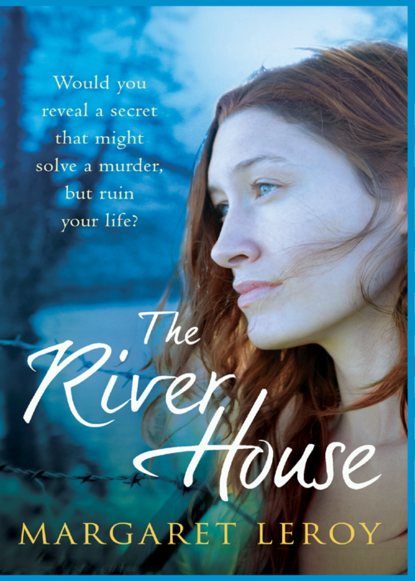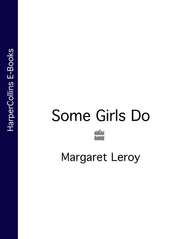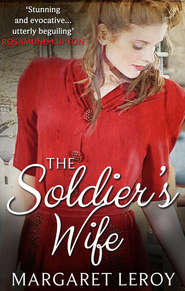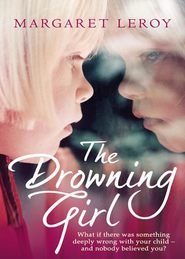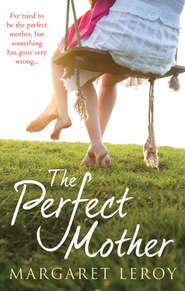По всем вопросам обращайтесь на: info@litportal.ru
(©) 2003-2024.
✖
The River House
Настройки чтения
Размер шрифта
Высота строк
Поля
‘Would you like to meet again?’ he says. ‘Perhaps for lunch or something.’
‘Yes. Yes, I’d like that. I’d like that very much,’ I say. I manage not to say Please.
‘We’ll do that, then,’ he says. ‘If you’d like to.’ But he doesn’t move.
I can feel his eyes on me, but there’s such a space between us: unbridgeable space.
‘Ginnie,’ he says.
My name in his mouth. The tenderness in his voice undoes me. I look up, meet his eyes: everything loose, fluid in me.
Slowly he moves his hand across the space between us, reaches his hand out to me, runs one finger slowly down the side of my face, tracing me out, watching me. I feel the astonishing warmth of his hand right through me: hear my quick in-breath.
He shakes his head, with that look he has, as though I puzzle him.
‘I dream about you,’ he says.
‘Yes,’ I say. I think of my own dream.
‘I want to make love to you. You know that, don’t you?’
I nod. I can’t speak.
We stand there for a moment. He cups the side of my face in his hand. I press my mouth into his palm: there is an extraordinary pleasure in the feel of his skin against my mouth. I would like to feel his whole body against me. He says my name again.
But people are coming towards us along the pavement—people from the bar, with their harsh raised voices and laughter. He takes a step away from me, lowers his hand. I can understand that he doesn’t want to be seen here with me: but I still feel a quick ache of rejection when he takes away his hand. I hate these people. I would like to stay here for ever on this pavement, his gaze on me, feeling his warmth on my skin. He shrugs a little.
‘We’ll speak,’ he says, and turns and walks away.
CHAPTER 11
Thursday is my day off. I decide I shall clean out Molly’s room so Greg can sleep there. Greg is working at home today, in his study under the eaves. Before I start on the bedroom I take him a mug of coffee. He’s intent on his work; he doesn’t hear me come in. In the angled light from his desk lamp, the bones and lines of his face are etched in shadow; he looks older, more severe. The room feels cloistered, apart; up here you’re scarcely conscious of the bustle of the street. You can see across the trees in people’s gardens and down to the river, on this dull wet day a sullen dark surge.
He’s checking through the editing of his latest book, an anthology of medieval Irish prose and poetry, aimed at a general readership. I glance at the page over his shoulder. There’s a little poem called ‘The Coming of Winter’: it tells how the bracken is red and the wind high and cold, the wild goose crying, cold seizing the wings of the birds.
‘I like that,’ I say.
‘It’s Irish,’ he says. ‘Probably ninth century.’
‘It makes me feel cold just to read it,’ I say.
He smiles a little. This pleases him.
‘We’re calling the book Our Celtic Heritage,’ he says. ‘Fenella reckons that anything Celtic sells.’
‘It’s a good title,’ I tell him.
‘D’you think so? I’m really not sure,’ he says. ‘I thought I’d have a word with Mother about it.’
Greg’s mother is a highly energetic woman, who likes to wear elegant layers of grey linen, and volunteers with the Citizens’ Advice Bureau, work to which she seems admirably well suited. I don’t doubt she’d have an opinion.
I put the coffee mug down on the desk beside him.
‘Not there,’ he says.
I put it on the floor.
Molly’s room has purple walls and fairy lights and a feather boa draped across the mantelpiece. She used to say smugly, No one would think it’s a lad’s room, would they, Mum? But today her room smells troublingly of vinegar and everything is covered with a velvet bloom of dust. I fling the curtains wide. This hasn’t been done for months: she lived a subterranean life, never let the day in. There are cobwebs where I’ve pushed back the curtains; I swipe at them with a duster and they break up, but the rags of web have an unnerving stickiness, lacy grey fragments clinging to my fingers. I feel a vague surge of guilt. There are certain feminine skills I’ve never really mastered—ironing, making your home gleam, straightening your hair. When the girls were small and I picked them up from school, there were women I used to notice at the gate who had clearly mastered these things, who knew what it means to be female: who were different from me, sleek and ironed and certain. I bet those women never find such cobwebs in their homes.
Molly is a hoarder. Her desk is littered with things she has no use for but can’t quite throw away—earrings speckled with tarnish, dog-eared essays, karma bracelets. I come on a handmade birthday card from Else, her German penfriend: it’s decorated with spangly stickers, and inside Else has written, in carefully looped handwriting, ‘To your 18 birthday. I wish you health, good luck and a lot of effect in your life!’
I penetrate under the bed, where I find a collapsed heap of celebrity magazines and an apple core and an open bag of crisps—the source of the vinegar smell. I heap up all the glittery chaos from her desk into boxes, and dust and polish everywhere. The room comes into focus, as though its lines and edges are clearer, sharper, than before.
And as I do these things there’s part of me that’s somewhere else entirely—as though I’m living another life in parallel to this one. A life in which I’m with Will on the pavement in the dark of the evening: and this time no one disturbs us, and he pulls me towards him and holds me to him, the whole warm length of his body pressing into mine. The sensation overwhelms me, and for a moment I sit on the bed and just let myself feel it: and the smell of his skin and the touch of his hands are almost as real as if these things are happening. As though it’s this room and my life here that is imagined. But mixed in with the longing, I feel a kind of fear. Yet what is it I’m so afraid of? That something will happen between us, that I could imperil everything? Or do I fear that nothing at all will happen, that nothing will be imperilled, that my life will just carry on, quite calmly, like before?
I hoover under the bed, and the noise brings Greg downstairs.
‘How long is this going to take?’
‘I’m sorry,’ I say. ‘It’ll just be a moment or two.’
Next to the fireplace there are bookshelves that stretch to the ceiling. It’s a kind of archaeology, these layers of the past—A-level and GCSE textbooks, and, from further back, the books the girls liked as children. There have always been loud protests if I threatened to give them away. The Storyteller is here, and Death who played dice with a soldier, with his bulbous eyes and his sack, the drawing that haunts me; and Amber’s book of nursery rhymes. I turn to ‘Grey goose and gander’, that I had to read each evening, feeling a mix of tenderness and tiredness, remembering the countless repetitions of early mothering, the things that always had to be done the same. Eva can get quite poignant about this sometimes, in the Cafe Matisse after one too many Bloody Marys, leaning towards me across the table, her splendid cleavage gleaming, the candle-flames reflecting in her eyes. ‘What happened, Ginnie?’ she’ll say. ‘D’you ever think—what happened to those children? The little children you bathed and read all those stories to? Don’t you sometimes want to be back there? You know—when you could make them perfectly happy by buying a chocolate muffin. And you’re so scared for them—you fear for them, that it’s all so fragile, that something awful could happen, that they’ll stick their fingers in an electric socket or something. But the thing is, you lose them anyway. You don’t think about that, you think it’ll go on for ever.’ She’ll look down into her wine glass and slowly shake her head. ‘Sometimes I wonder—where have those little children gone?’ I always tell her that I don’t share her nostalgia—that I like the teenage years; but now as I pile these books into boxes, ready to go to the second-hand bookshop in Sunbury, it seizes me for a moment, that sense of something lost and irreplaceable.
Right at the top of the bookcase there’s a shelf of Ursula’s books. Leaves and tendrils from her drawings decorate the spines. Ursula draws such wonderful plants—extravagant, Italianate—that she sometimes gets letters from fans—Ursula, I would so love to see your garden. But the plot at her Southampton home is a few square yards of decking and a cactus: the enchanted gardens she draws are all from her imagination.I run my finger along the spines, feeling a flicker of envy; it must be good to have achieved something as solid as this whole shelf of books. The one that made all the difference for her is there—the volume of Hans Anderson fairy tales she illustrated.
She wasn’t always successful. She’d been struggling for years, largely living off Paul, her husband, wondering if it was worth it, or whether she should perhaps go back to primary teaching, when she did this book. I remember when she showed it to me—hesitant, self-deprecating—she used to be hesitant then. I could see at once it was special. There was something about these stories that suited her wayward imagination—these white-fleshed girls with their voluptuous deprivations: the mermaid trying to walk on her beautiful legs that cut her, the curve of Gerda’s white throat and the scratch of the robber girl’s knife. Everything was animate, full of sex or threat, every petal, every tree-root; tendrils of ivy clutched like greedy caressing fingers, the flowers had lascivious smiles.
Nothing much happened to start with—she sold the usual few thousand copies; and then it was chosen by children’s BBC, to illustrate a series of fairy tales read by celebrities—and suddenly everyone was buying it. Not just children either, for her books inhabited that sought-after terrain—books for children that adults also enjoy. One drawing was even reproduced in Vogue, in a piece on the New Romantics—the picture of the Little Mermaid that I have in my kitchen, that Molly found so troubling as a little girl. I remember when Ursula visited, just after the arrival of her first fat royalty cheque. She looked different. Still hardly any make-up, and her hair severely tied back, but with a new coat of the softest buttery suede. Though it wasn’t just the money. There was a new certainty about her: she knew what she was for.
My phone rings. It’s Molly.
‘Sweetheart, how are you?’
‘Well…my pimp beat me and then I got raped and I’ve started shooting up.’ She can’t quite suppress a giggle. ‘Fine otherwise.’
‘Tell me what’s happening.’
The Freshers’ Fair was great, she says, she’s joined at least thirty societies. Even the Blonde Society—you don’t have to be blonde, they just go round all the cocktail bars. And can she have a long denim skirt and some shots glasses for Christmas? And thanks for the alarm clock, but she didn’t really need it, she’s using the clock on her mobile.
‘Molly, are you eating OK? Can you manage all right with the cooker?’
‘I don’t cook much really,’ she says. ‘If I miss a meal I have Pringles.’
I question whether Pringles are a satisfactory meal.
Molly sighs extravagantly over the phone.
‘Mum, d’you ever listen to yourself? You been on one of those parenting courses or something? Look,I’m fine, OK? I’ve just joined thirty societies and I’m fine.’





